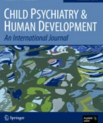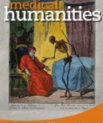Embodied Critical Thinking
IMC partner in new project funded by The Icelandic Center for Research

Embodied Critical Thinking (ECT) is a cutting-edge project that develops a novel, critical and problem-based, transdisciplinary approach that seeks to renew the teaching of critical thinking. The aim of ECT is to undertake a systematic, thoroughgoing and practical reconsideration of the concept and practice of critical thinking by engaging recent theories and discussions of embodiment in terms of integrating the complexity of feeling and experiential backgrounds in thinking. The theories and pedagogics of ECT will be put to practice in teaching, tested and qualitatively assessed in seminars for students, and in workshops for teachers and researchers. International universities participate in the project, as well as two transdisciplinary research institutes in Århus and Chicago.
The main theoretical output will be a Handbook on ECT, its approaches and methods for introductory courses in critical and problem-based, transdisciplinary thinking both on university and high school levels. Internationally leading researchers and transdisciplinary research centers in the field of embodiment will be involved in contributing to the theoretical and practical components of the project.
The three year project has been granted 440.000 Euro from The Icelandic Centre for Research.
Principal Investigators:
- Sigríður Þorgeirsdóttir, University of Iceland - School of Humanities
- Björn Þorsteinsson, University of Iceland - School of Humanities
- Donata Schoeller, University of Koblenz (project manager)
Co-proposers:
- Andreas Roepstorff, Interacting Mind Centre, Aarhus University
- Claire Petitmengin, Micro-phenomenology Laboratory, Paris
Other partners:
- Mary Jeanne Larrabee, Peace, Justice and Conflict Studies, DePaul University
- Edward Casey, Stony Brook University, New York
- Prof. Matthias Jung, Koblenz University



